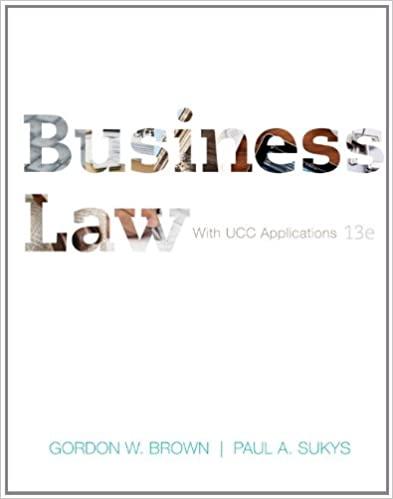One of the essential weapons in the diplomatic arsenal is the guarantee of secrecy. If diplomats cannot
Question:
One of the essential weapons in the diplomatic arsenal is the guarantee of secrecy. If diplomats cannot be certain that their cables, letters, and dispatches will be kept secret, they will not be able to communicate candidly with the decision makers back home. So what happens when a group like WikiLeaks reveals such secrets? Is it ethical for such online groups to reveal the contents of secret dispatches that were obtained illegally in the first place? What happens to the trust that is inherent within the diplomatic process when secrets can be accessed so easily? Does bringing diplomatic activity out into the open help or hinder the public’s ability to evaluate the ethical behavior of our diplomats? A case in point can be found among documents disclosed by WikiLeaks that revealed that American diplomats in the former Soviet nation of Georgia may have relied too heavily on the inside reports given to them by Georgian leaders and less on more objective intelligence from outside sources. The secret cables released by WikiLeaks also indicate that the Georgian leaders, with their own agenda aimed at getting United States support for their plan to resist Russian dominance, may have deliberately distorted the information passed onto the Americans. Even more serious, the secret cables reveal that the Georgians probably provoked an encounter with South Ossetia, an enclave that had broken away from Georgia and, in the process, had sought Russian protection. In fact, it now appears that the Georgians launched a first strike against South Ossetia and then told the Americans that the Ossetians had attacked them. The documents released by WikiLeaks indicate that the Americans relied on the one-sided accounts manufactured by the Georgian government and did not seek any outside verification of the reports. It is clear that the American diplomats made several tactical errors in the management of this incident. However, were they not ethically correct in supporting the democratic Georgian state against the autocratic Russian Federation? Is it not a morally superior position to defend democracy even at the expense of the truth? Or does “truth” occupy a morally superior position in the hierarchy of ethical values? Should the Georgian officials have been more candid with the Americans or did they have a higher responsibility to protect their own people and territory that justified their distortion of the truth? Keep these issues in mind as we explore the nature of ethics in this chapter. (See C. J. Chivers, “Embracing Georgia, U.S.
Misread Signs of Region’s Rifts, Cables Show,” The New York Times, December 2, 2010, p. A-15.)
Questions
1. Was WikiLeaks justified in obtaining the leaked cables illegally? Explain.
2. Does gaining American support (the end), justify the Georgian first strike against South Ossetia (the means)? Explain.
3. Were the Georgian officials justified in distorting the truth to protect their own citizens and territory? Explain.
4. Does the duty to protect a democracy “trump” the telling of the truth? Explain.
5. Does the morality of a nation-state differ from the morality of an individual? Why or why not?
Step by Step Answer:

Business Law With UCC Applications
ISBN: 9780073524955
13th Edition
Authors: Gordon Brown, Paul Sukys





